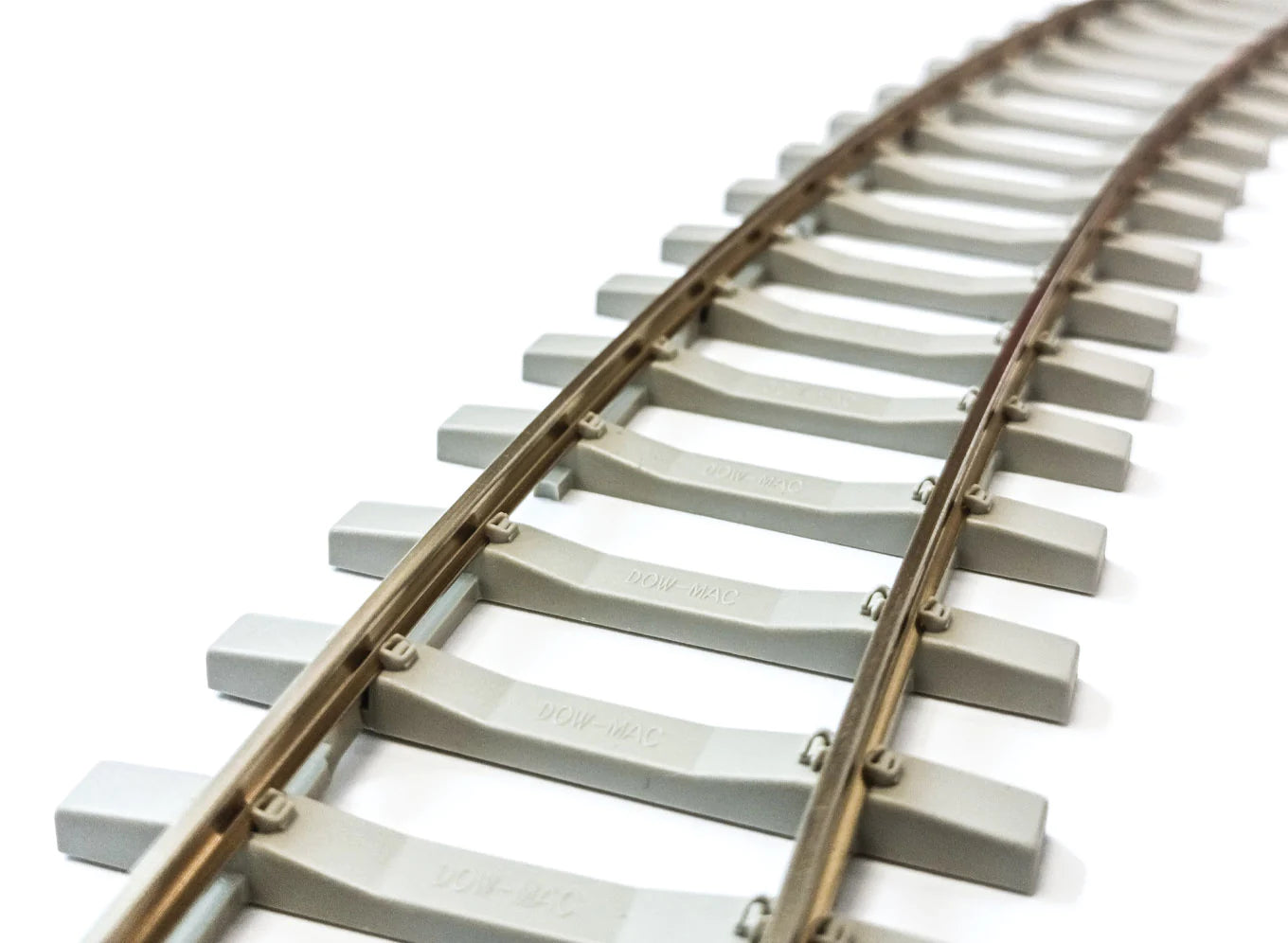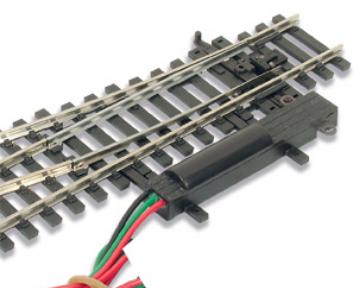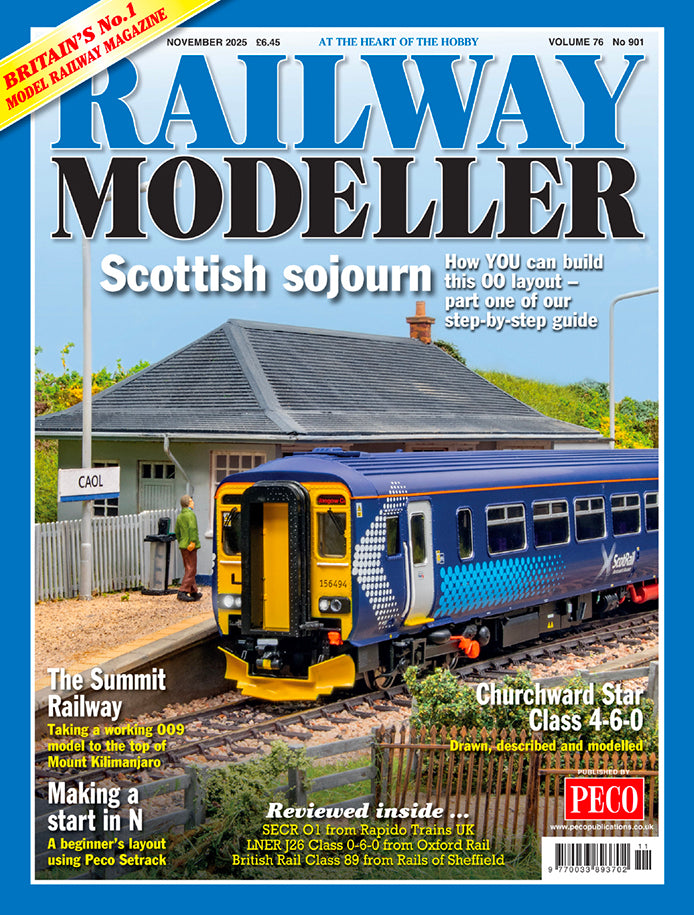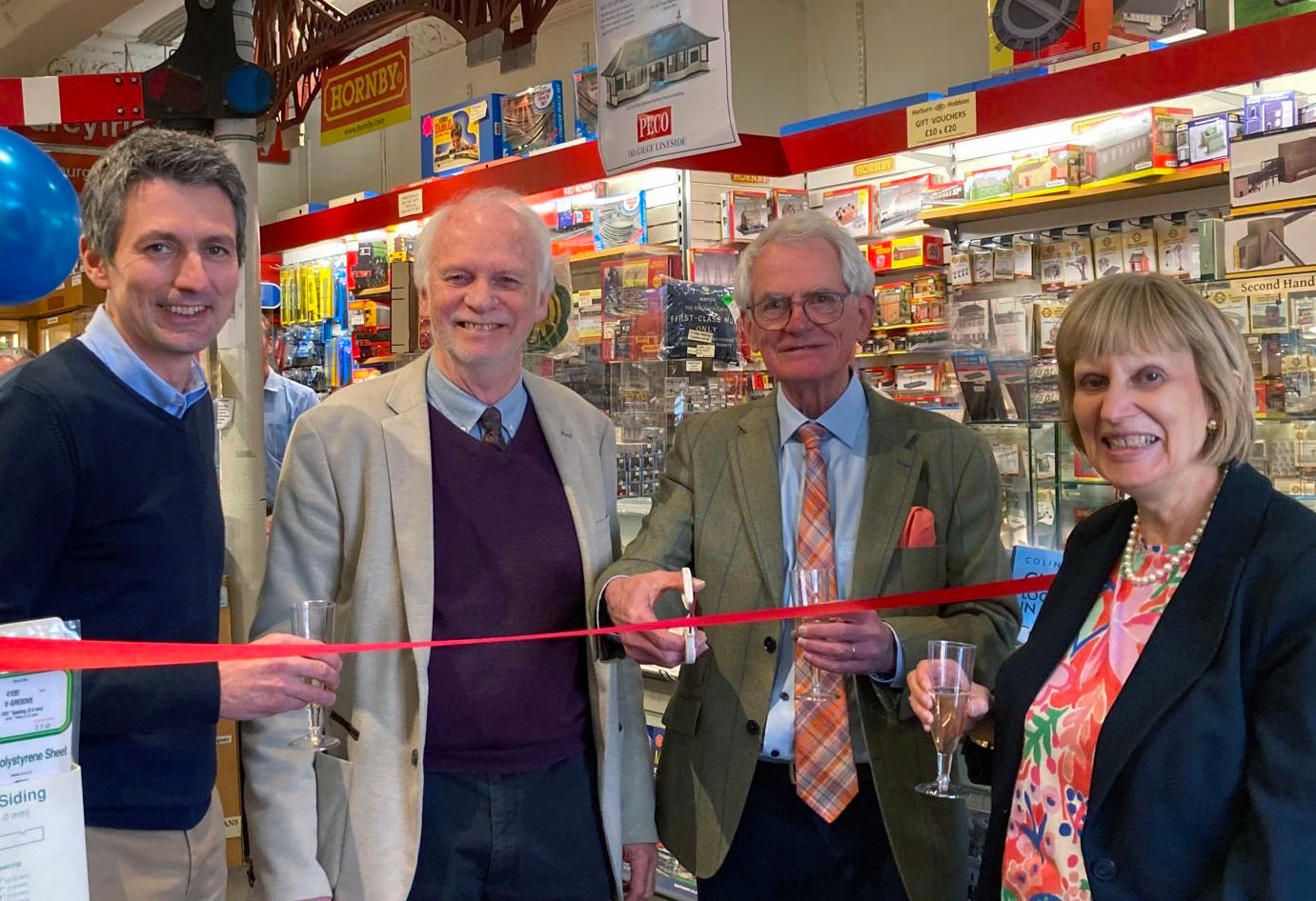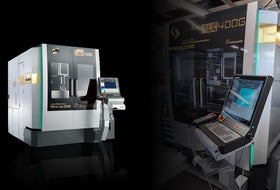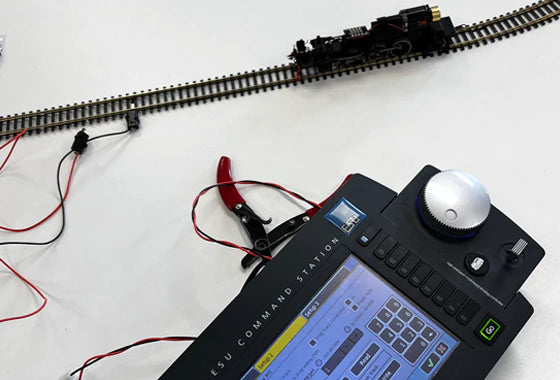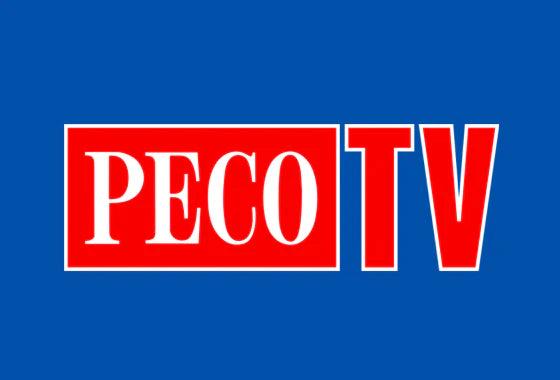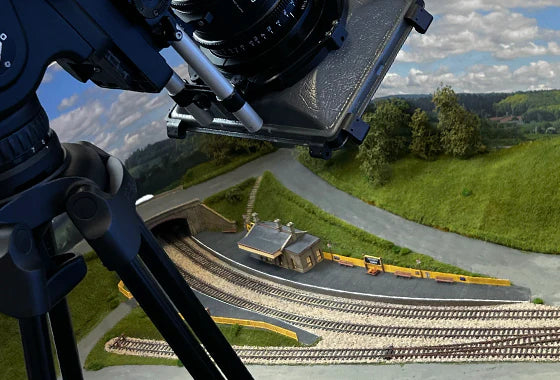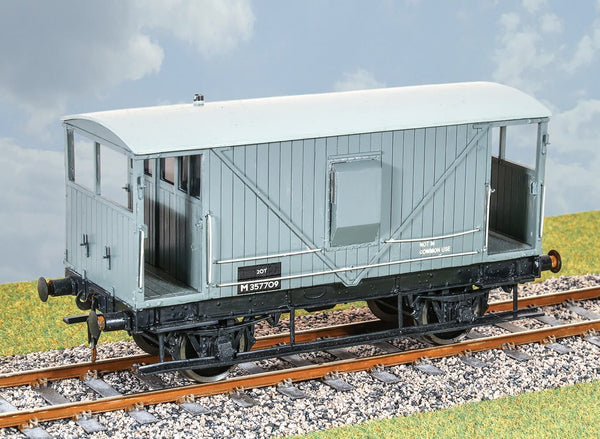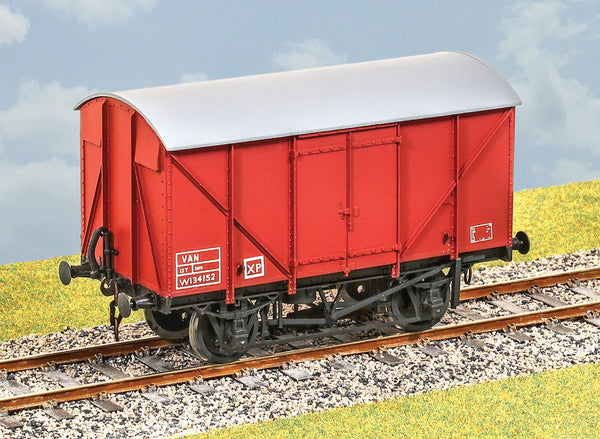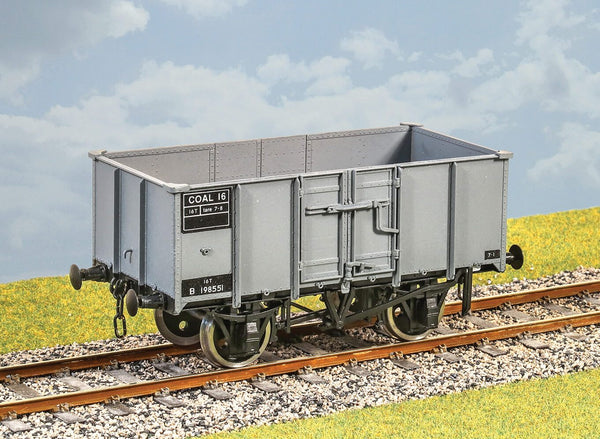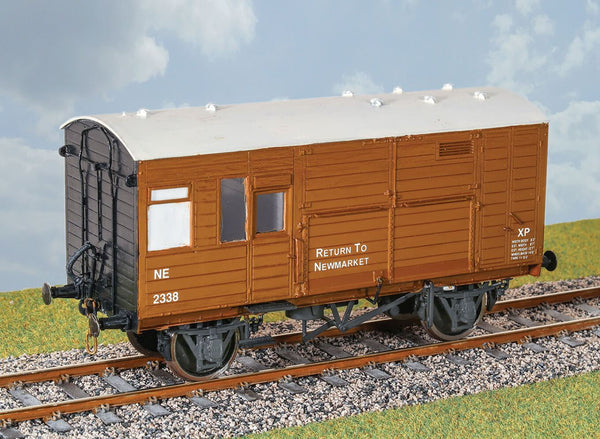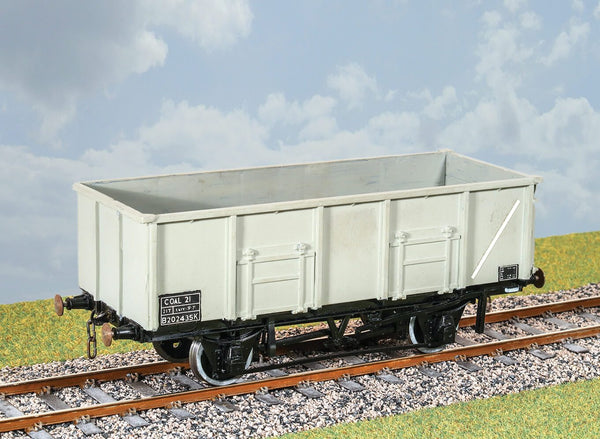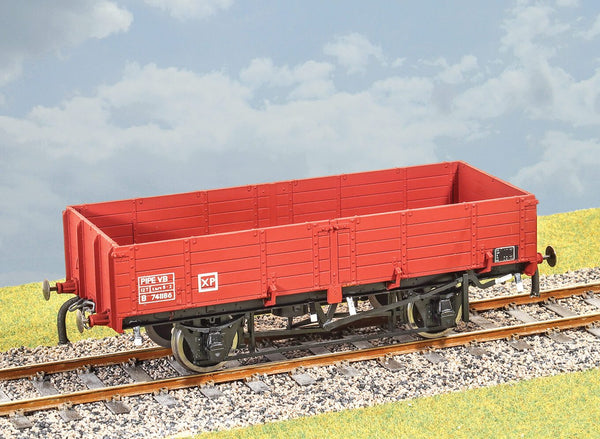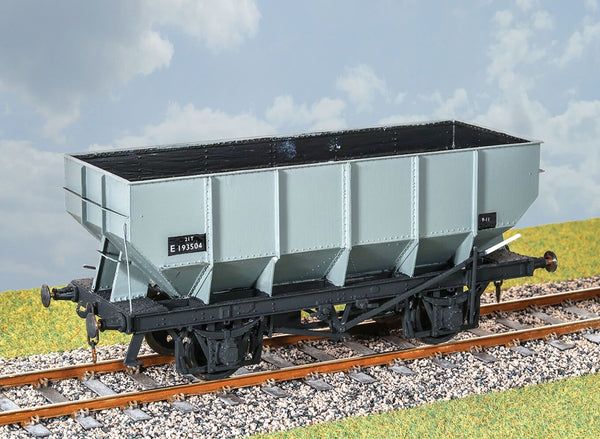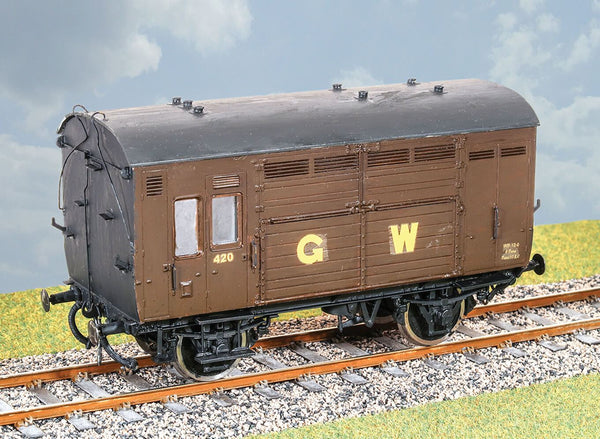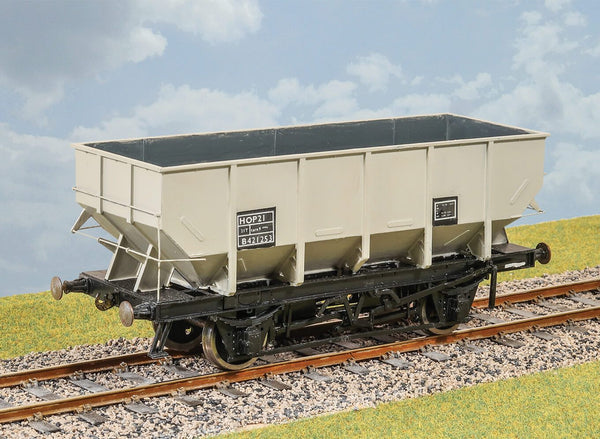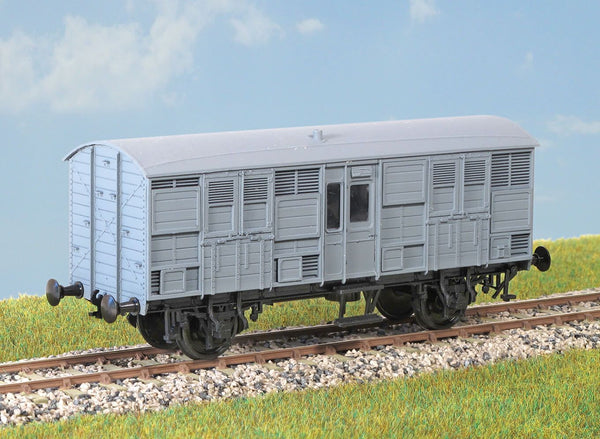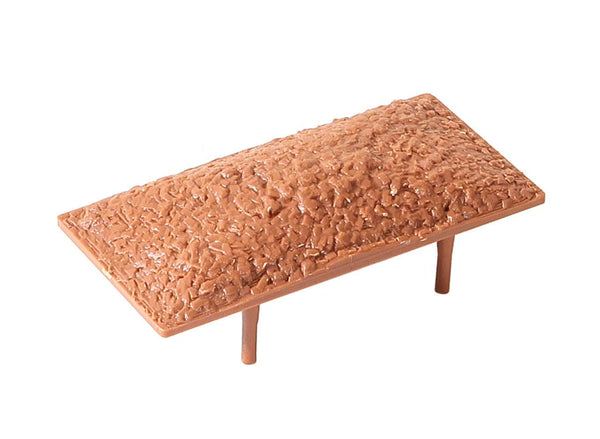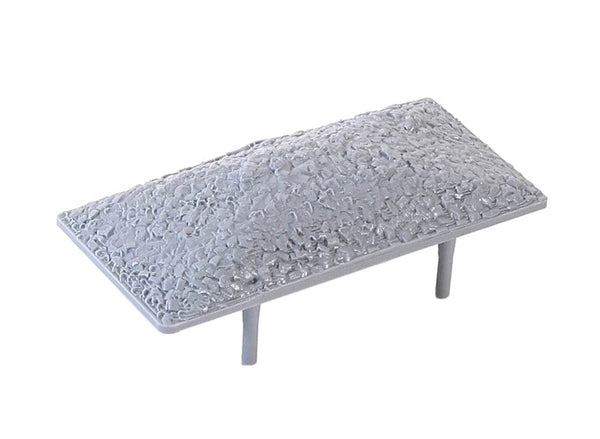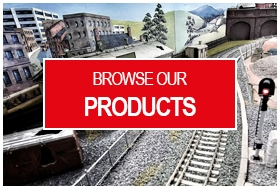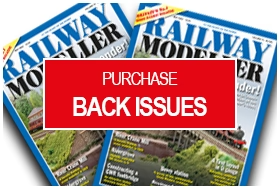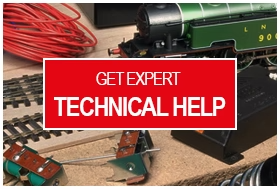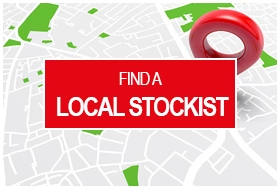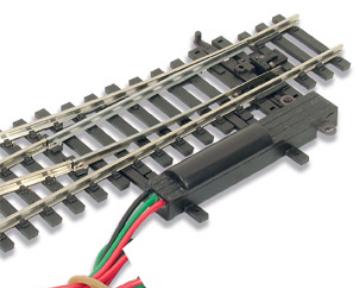BROWSE PECO PRODUCTS
Browse through our complete product portfolio.
268 Products Found
LMS 20ton Goods Brake Van
Developed from a Midland Railway design, 950 of these vans were built between 1927 and 1931. After Nationalisation their use spread to other areas of BR, especially the Eastern Region. A few lasted into the 1990s. Transfers for LMS and BR. These finely moulded plastic wagon kits come complete with pin point axle wheels and bearings, 3 link couplings and transfers. This kit is supplied with pre-coloured moulded parts although painting can improve the appearance. Additional parts to enable the vehicle to be modelled incorporating modifications made to the prototypes during their working life are included where appropriate.
GWR 12ton Covered Goods Wagon
Plywood body construction came about as a result of a shortage of wooden planks at the end of the last war. A total of 1,100 vans were built, 350 with only a hand brake (diagram V37), which eventually had vacuum brakes retro-fitted. They lasted into the 1970s. Transfers for GWR and BR.These finely moulded plastic wagon kits come complete with pin point axle wheels and bearings, 3 link couplings and transfers. This kit is supplied with pre-coloured moulded parts although painting can improve the appearance. Additional parts to enable the vehicle to be modelled incorporating modifications made to the prototypes during their working life are included where appropriate.
BR 16ton Mineral Wagon
6,000 were built at the end of the Second World War for service in France. They returned to the UK later in the 1950s and remained in use into the 1960s. Many were then sold into private industry use. Transfers for BR. These finely moulded plastic wagon kits come complete with pin point axle wheels and bearings, 3 link couplings and transfers. This kit is supplied with pre-coloured moulded parts although painting can improve the appearance. Additional parts to enable the vehicle to be modelled incorporating modifications made to the prototypes during their working life are included where appropriate.
LNER Horse Box Wagon
Just 30 of these horseboxes were built, all in 1938, mainly to carry racehorses. They included lavatories for the travelling grooms. Many lasted into the 1960s. Transfers for LNER and BR. These finely moulded plastic wagon kits come complete with pin point axle wheels and bearings, 3 link couplings and transfers. This kit is supplied with pre-coloured moulded parts although painting can improve the appearance. Additional parts to enable the vehicle to be modelled incorporating modifications made to the prototypes during their working life are included where appropriate.
BR 21ton Mineral Wagon
1,500 examples built 1950 – 1951, mainly for the transport of coal. Widely used and lasted until the 1980s. Transfers for early and post-TOPS BR. These finely moulded plastic wagon kits come complete with pin point axle wheels and bearings, 3 link couplings and transfers. This kit is supplied with pre-coloured moulded parts although painting can improve the appearance. Additional parts to enable the vehicle to be modelled incorporating modifications made to the prototypes during their working life are included where appropriate.
BR 12ton Pipe Wagon
These wagons were designed to carry heavy cast iron or steel pipes for water and drainage works. This kit represents one of 350 built in 1955. Withdrawn between late 70s and early 80s. Transfers for early and post-TOPS BR. These finely moulded plastic wagon kits come complete with pin point axle wheels and bearings, 3 link couplings and transfers. This kit is supplied with pre-coloured moulded parts although painting can improve the appearance. Additional parts to enable the vehicle to be modelled incorporating modifications made to the prototypes during their working life are included where appropriate.
LNER 20ton Hopper Wagon
13,645 of these hoppers were built, this kit representing one from the first batch of 409 built in 1936. Featuring riveted construction and LNER brake gear, many lasted into the 1970s. Transfers for LNER and BR. These finely moulded plastic wagon kits come complete with pin point axle wheels and bearings, 3 link couplings and transfers. This kit is supplied with pre-coloured moulded parts although painting can improve the appearance. Additional parts to enable the vehicle to be modelled incorporating modifications made to the prototypes during their working life are included where appropriate.
GWR Horse Box Wagon
300 of these vehicles were built in the 1920s, lasting into the 1950s and 60s. They were used to carry horses to racecourses and stables, often marshalled into passenger and parcels trains. Transfers for GWR and BR. These finely moulded plastic wagon kits come complete with pin point axle wheels and bearings, 3 link couplings and transfers. This kit is supplied with pre-coloured moulded parts although painting can improve the appearance. Additional parts to enable the vehicle to be modelled incorporating modifications made to the prototypes during their working life are included where appropriate.
BR 21ton Coal Hopper Wagon
16,800 of these wagons were constructed in the 1950s. They were widely used throughout the North East for the transport of coal. Roller bearing axle boxes were applied to some in the 1960s, options for which are in the kit, and lasted until the 1980s. Transfers for early, late and post-TOPS BR. These finely moulded plastic wagon kits come complete with pin point axle wheels and bearings, 3 link couplings and transfers. This kit is supplied with pre-coloured moulded parts although painting can improve the appearance. Additional parts to enable the vehicle to be modelled incorporating modifications made to the prototypes during their working life are included where appropriate.
GWR Beetle Prize Cattle Wagon
Introduced to carry valuable cattle with their attendants, they were mainly seen on passenger trains until the 1950s. These finely moulded plastic wagon kits come complete with pin point axle wheels and bearings. Glue and paint will be required, along with appropriate transfers. Additional parts to enable the vehicle to be modelled incorporating modifications made to the prototypes during their working life are included where appropriate.
